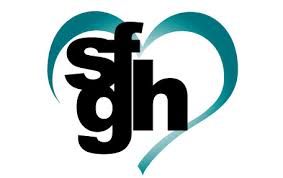Disulfiram Interactions With HIV Medications: Clinical Implications
| Status: | Archived |
|---|---|
| Conditions: | HIV / AIDS, Psychiatric |
| Therapuetic Areas: | Immunology / Infectious Diseases, Psychiatry / Psychology |
| Healthy: | No |
| Age Range: | Any |
| Updated: | 7/1/2011 |
| Start Date: | November 2008 |
| End Date: | July 2011 |
The purpose of this study is to determine whether disulfiram might be a safe and effective
treatment for cocaine and/or alcohol dependence in patients with HIV disease. This research
is designed to characterize the presence or absence of significant drug interactions between
disulfiram and HIV medications using standard clinical pharmacology techniques as well as
monitor any side effects that might occur when these medications are administered together.
Cocaine and alcohol abuse are strongly linked to HIV infection and transmission of the
virus. Disulfiram has long been approved by the US FDA for the treatment of alcohol and
recent data shows it to be effective in reducing cocaine abuse. Disulfiram and
antiretroviral medications (ARV) are metabolized by cytochrome P450 3A and concomitant use
of these drugs could potentially produce adverse drug interactions underscoring the need to
identify and understand the clinical implications of these drug interactions in order to
more effectively treat individuals with both HIV disease and cocaine and/or alcohol use
disorders. This will be accomplished by conducting studies aimed at identifying whether
pharmacokinetic or pharmacodynamic drug interactions of importance occur between disulfiram
and medications frequently utilized in those with HIV/AIDS.
Abuse of cocaine and/or alcohol has been shown to be a significant risk factor for HIV
infections as a result of high risk sexual and drug use behaviors occurring in the context
of use of these substances. Those with HIV infection and untreated cocaine and/or alcohol
dependence are also at a high risk of transmitting HIV to others. Moreover, those with HIV
disease and substance dependence often experience poor clinical outcomes as a result of
nonadherence to HIV treatment regimens.
Disulfiram (DIS) is an inhibitor of ALDH and has been reported to alter hepatic cytochrome
P450 enzyme function important to metabolism of many drugs frequently used in the treatment
of HIV/AIDS. Although approved for the treatment of alcohol dependence, DIS has been studied
as a treatment for cocaine addiction in recent years. DIS at the standard 250 mg daily dose
has been associated with significant reductions in cocaine use as well as alcohol use in
those with histories of concomitant cocaine-alcohol abuse. DIS 250 mg daily has been shown
to have a significant pharmacokinetic interaction with cocaine resulting in delayed cocaine
clearance. In order to more fully access possible use of DIS treatment for cocaine and/or
alcohol dependence in this population, it is important to determine if any excess risk is
conveyed as a result of drug interactions that might occur between DIS and the ARV
medications.
This study will be using a standard clinical pharmacology study design using a
within-subject design examining the two drug interaction studies between DIS (250 mg daily)
and the following medications:
1. Non-nucleoside reverse transcriptase inhibitor, efavirenz 600 mg daily for 10 days
2. Protease inhibitors atazanavir 400 mg daily for 8 days or ritonavir 200 mg daily for 8
days
Additional data will be collected and analyzed including:
3. Clinical data on effects of these medications alone and in combination on cardiac
conduction, hepatic function, and serum lipids will be obtained
4. The safety of co-administration of alcohol containing HIV preparations (ritonavir) with
DIS will be determined
5. The effect of ARV on DIS function as determined by ALDH activity and DIS and metabolite
concentrations will be determined using a control sample within-subject design (DIS
doses of 62.5 mg and 250 mg daily) and between subjects design.
We found this trial at
1
site
San Francisco General Hospital San Francisco General Hospital and Trauma Center (SFGH) is an essential...
Click here to add this to my saved trials
